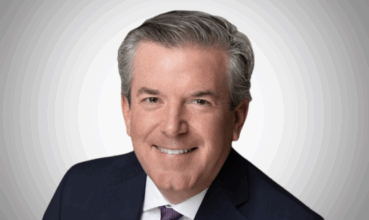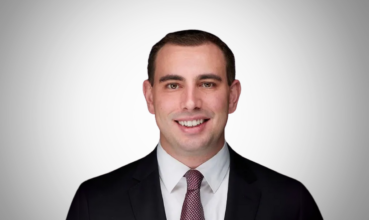“Indianapolis has always had a strong local buyer group,” notes Cameron Benz, First Vice President with CBRE‘s Indianapolis-based Multifamily team, “but with older vi...
Czech Republic's Real Estate Market: A Stable Haven in Turbulent Times




“This part of the world is performing differently, and perhaps unexpectedly, compared to Western markets,” explains Katarina Brydone, Managing Director at Colliers Czech Republic. In a real estate landscape where many global markets are experiencing significant volatility, the Czech Republic stands as a remarkably stable investment destination with unique characteristics that might surprise international investors.
A Market Defying Global Trends
Unlike many Western markets struggling with office vacancies and value corrections, the Czech Republic presents a starkly different picture. “We don’t have these issues,” Brydone states emphatically. The office market in Prague has proven remarkably resilient post-COVID, with vacancy rates at just 7% overall, and virtually no availability in prime locations.
“If you examine prime offices or A-class offices in good locations, you have no premises available,” Brydone notes. “If you’re a tenant needing 5,000 square meters more, you really have nowhere to go, and you need to start looking three years ahead.”
This scarcity is largely due to extremely slow approval processes for new developments, creating a natural market regulation. The limited supply has driven significant rental growth, with prime rents increasing by approximately 33% to reach €30 per square meter, a dramatic shift for a market previously known for stability.
The Surprising Dominance of Local Capital
Perhaps the most unexpected aspect of the Czech market for international investors is the dominance of local capital. A 2006 law change established tax-favorable real estate funds, leading to explosive growth in the domestic investment sector.
“We have approximately 400 funds,” Brydone explains. “Czech populations are accustomed to saving money in these funds, whether they’re retail funds or what we call institutional qualified investors funds.”
This abundance of local capital has transformed the competitive landscape. “Eight or nine years ago, international capital predominantly handled deals of this size. Now local capital competes and sometimes even outbids international capital,” Brydone observes. Today, local investors account for 80-90% of the market.
For international investors, this local capital dominance has a significant upside: value protection and strong liquidity. “We haven’t seen the fluctuations Western Europe has experienced,” Brydone emphasizes. “We had a very small dip, but with rental growth across all sectors, in offices, industrial, and to some extent in retail as well.”
This stability stands in stark contrast to other European markets: “London lost more value than Prague. So did Germany and France. This is a very stable and notably non-volatile market.”
Investment Opportunities by Asset Class
Logistics: High Demand, Limited Supply
Logistics remains one of the most sought-after sectors, with significant interest from international capital. However, supply is extremely limited as the major developers “develop but never sell,” instead placing properties in their own funds.
When logistics portfolios do come to market, competition is fierce. Brydone recalls selling two portfolios between €100-250 million in 2022: “We engaged with investors from Singapore and Korea all the way to US capital. The bidding was absolutely intense.”
The sector recently saw one of the market’s largest transactions when Blackstone joined TPG in a half-billion euro deal.
Retail: Defying the Global Downturn
Unlike many Western markets, Czech retail properties—both shopping centers and retail parks—have maintained strong fundamentals. “Shopping centers have been very popular in Czech Republic for at least 10 years,” Brydone notes.
The market benefits from limited supply compared to the US, which has “four times the amount of supply than we do.” With limited new development, existing centers remain relevant through regular investment cycles. “The rule of thumb is that every 10 years you need at least a facelift. Every 15 years, if you haven’t done your facelift, you need to remodel, extend and redevelop your center,” Brydone explains.
This investment approach keeps centers relevant and supports rental growth, making retail a resilient asset class despite challenges seen elsewhere.
Hotels: Tourism Boom
Prague’s popularity as a tourist destination, ranked among the top European city destinations, has driven strong performance in the hotel sector. “In terms of tourist visits, 2019 was around 8 million. And last year, 2024, we were slightly over 8 million already,” Brydone reports.
With expected regulations on Airbnb likely to further boost hotel demand, the sector presents attractive opportunities across all categories from three-star to five-star properties.
Residential: Scarcity Driving Value
The residential sector, particularly purpose-built rental housing (PRS), faces significant supply constraints. Developers are incentivized to sell rather than hold properties due to rapid value appreciation during construction.
“If you are developing residential properties, you aren’t motivated to pursue PRS projects, where you essentially fix the price when receiving a building permit,” Brydone explains. “By the time construction completes in about one and a half to two years, your value will increase by 15 to 20% comulative.”
Navigating the Czech Market as an International Investor
For international investors looking to enter the Czech market, Brydone offers several insights:
- Recalibrate yield expectations: “Many investors view Central Europe as secondary regions offering higher yields. But as the market matures, a mindset adjustment may be necessary, because pricing is no longer as advantageous.”
- Seek off-market opportunities: Given the dominance of local capital, “partnering with someone like us, who can identify off-market deals, provides an opportunity to gain market entry.”
- Consider timing with interest rates: “The cost of borrowing is decreasing. Some deals still have pre-2022 loans in place for the next one or two years. In that timeframe, borrowing costs are expected to decrease further.”
- Leverage local expertise: The market offers “quality services and market maturity” comparable to Western Europe, but with different competitive dynamics.
Colliers’ Entrepreneurial Approach
As Managing Director at Colliers Czech Republic, Brydone brings a wealth of experience to her role. Her career in real estate spans 16 years at CBRE before joining Colliers, with expertise across office, retail, and logistics sectors on deals ranging from €20 million to €600 million.
She emphasizes what makes Colliers unique in the market: “This is truly an entrepreneurial company. Many leaders are entrepreneurs themselves who merged with Colliers.”
This entrepreneurial spirit creates a different mindset compared to traditional corporate structures. “Their ownership approach encourages innovative thinking. Going the extra mile for clients is extremely important because people understand this is their personal business,” Brydone explains.
With 55 people in the Czech Republic office, Colliers offers comprehensive services supporting clients through the entire real estate cycle, from land acquisition through development, management, and eventual divestment.
As global investors increasingly look beyond traditional markets for stability and growth, the Czech Republic presents as a mature market with strong fundamentals, rental growth potential, and remarkable resilience against the volatility affecting many Western real estate markets.
Similar Articles
Explore similar articles from Our Team of Experts.


Specializing in industrial land development, retail acquisitions, and strategic investments, Spear Realty has established itself as a specialist in Ontario’s commercial real estate sec...


When COVID-19 struck, Johnny Yeh watched as the coworking empire he’d helped build suddenly faced an existential threat. “Immediately, we saw a hit on freelancers using single de...


“We have an optimistic view of the future,” says Rob Huthnance, newly appointed President of CT Realty, a company at the forefront of industrial real estate development across th...


For over two decades, Dayssi Olarte de Kanavos, President and COO of Flag Luxury Properties, has been at the forefront of luxury real estate development, creating iconic properties that have...



